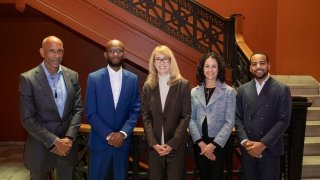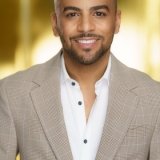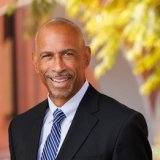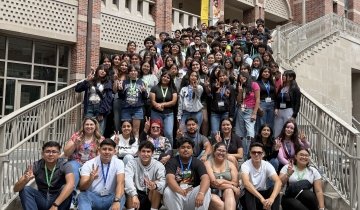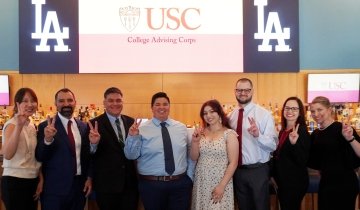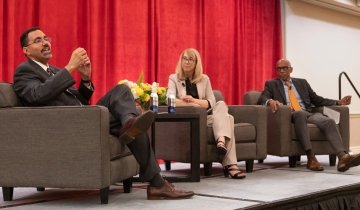At least 10 states have implemented restrictions on diversity, equity and inclusion (DEI) according to a recent ABC News story on the impact of anti-DEI legislation in higher education. Some policies ban state funds from being used for diversity-based programs, activities and offices on college campuses. While others ban diversity offices at universities altogether. On March 28, the USC Pullias Center for Higher Education’s 45th Pullias Lecture gathered leading DEI scholars to discuss the current environment in higher education and offer their historical and policy insights. Held at the California Science Center in Los Angeles, the lecture’s theme was Understanding and Navigating an Increasingly Hostile DEI Environment in Higher Education. Over 300 participants—in-person and online—attended the event this year.
Moderated by USC Rossier Dean Pedro Noguera, the distinguished panel of national DEI scholars and researchers included Eddie Cole, professor of education and history, UCLA; Liliana Garces, professor of community college leadership, University of Texas, Austin; and Royel Johnson, associate professor of higher education, USC Rossier and a member of the Pullias Center faculty.
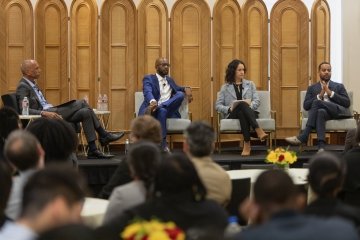
“As these [DEI] challenges emerge, it’s important to remember they come on the heels of progress and to remain hopeful,” said Adrianna Kezar, director of the Pullias Center, in her welcome remarks.
While attacks against DEI on college campuses appear to be in the news more lately, there is a longstanding history of controversy in higher education. “It seems to come out of nowhere,” said Cole. “But the historian of higher education in me reminds me that much of this is not new.” He goes on to say that the attacks on equity in higher education are as old as higher education in the U.S. From the oldest school in the country in 1636 all the way up to 2024, the challenges remain today of who enters college and who does not. The DEI challenge is “woven into the fabric of higher education” according to Cole.
“It’s a very well coordinated and very well funded campaign to see distrust in our higher education system,” said Garces. One main strategy she noted is to mischaracterize educational policies to legitimize them. The mischaracterizations are embedded into laws so that educators are forced to change their practice. The waves of anti-Critical Race Theory (CRT) in K–12 legislation and anti-DEI legislation may have infringements on academic freedom according to Garces. “We know that decades of social science research show that we need to attend to race,” she added. “We need to speak openly and candidly about it, to use Supreme Court Justice Sonia Sotomayor’s words in a prior court ruling, in order to stop race from mattering.”
Cole and Garces also contributed to a recent DEI report providing research-based facts to respond to attacks against DEI initiatives on college campuses. They were among 11 university DEI scholars who contributed to the report produced by the USC Race and Equity Center.
To add further context, Johnson discussed recent events and their connection to higher education. “It is open season on DEI,” he said. From the murder of George Floyd in the summer of 2020 to the storming of the U.S. Capital on January 6 to a wave of legislation targeting CRT, “what we’re seeing in higher education is an extension of that,” Johnson continued. As the country changes and becomes more diverse, there are implications for democracy. “The evidence is clear,” he added. “The educational benefits of diversity are overwhelming not just to the individual, but to society.”
According to Noguera, the attacks on DEI in higher education is a moment in history and there is no reversing our increasingly diverse society. While the attacks on DEI in higher education are significant and repressive, it does not define the future of education. “Inevitably diversity is in our interests as a nation,” Noguera said.

